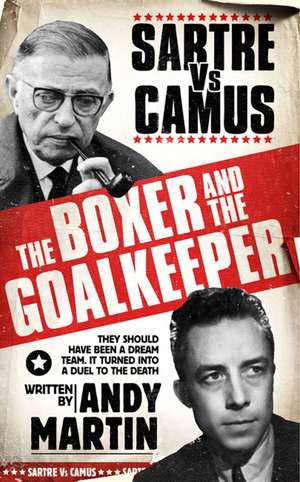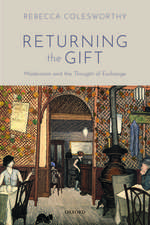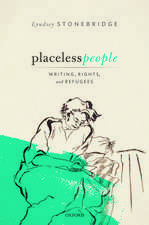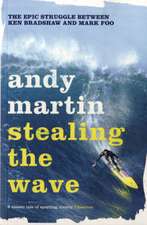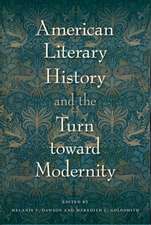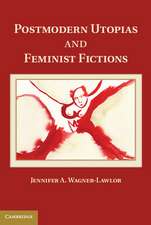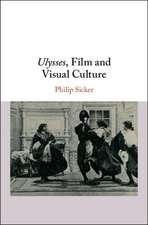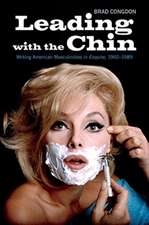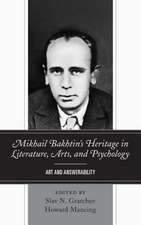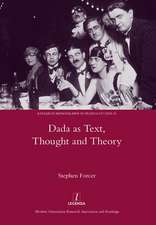The Boxer & The Goal Keeper
Autor Andy Martinen Limba Engleză Hardback – 24 mai 2012
Preț: 136.04 lei
Nou
Puncte Express: 204
Preț estimativ în valută:
26.03€ • 27.23$ • 21.62£
26.03€ • 27.23$ • 21.62£
Comandă specială
Livrare economică 10-15 martie
Preluare comenzi: 021 569.72.76
Specificații
ISBN-13: 9781847374172
ISBN-10: 1847374174
Pagini: 352
Ilustrații: Illustrations
Dimensiuni: 143 x 221 x 27 mm
Greutate: 0.43 kg
ISBN-10: 1847374174
Pagini: 352
Ilustrații: Illustrations
Dimensiuni: 143 x 221 x 27 mm
Greutate: 0.43 kg
Notă biografică
Andy Martin is the author of Stealing the Wave, Napoleon the Novelist and Waiting for Bardot. He is married, is a roadie for his two sons, and teaches at Cambridge University. In various parallel worlds, he is a surfer, a Hollywood scriptwriter, and a great poet.
Descriere
Jean-Paul Sartre is the author of possibly the most notorious one-liner of twentieth-century philosophy: 'Hell is other people'. Albert Camus was The Outsider. The two men first came together in Occupied Paris in the middle of the Second World War, and quickly became friends, comrades, and mutual admirers.
But the intellectual honeymoon was short-lived. In 1943, with Nazis patrolling the streets, Sartre and Camus sat in a cafe on the boulevard Saint-Germain with Simone de Beauvoir and began a discussion about life and love and literature that would finally tear them apart. They ended up on opposite sides in a war of words over just about everything: women,philosophy, politics.Their friendship culminated in a bitter & very public feud that was described as 'the end of a love-affair' but which never really finished.
Sartre was a boxer and a drug-addict; Camus was a goalkeeper who subscribed to a degree-zero approach to style and ecstasy. Sartre, obsessed with his own ugliness, took up the challenge of accumulating women; Camus, part-Bogart, part-Samurai, was also a self-confessed Don Juan who aspired to chastity. Sartre and Camus play out an epic struggle between the symbolic and the savage.
But what if the friction between these two unique individuals is also the source of our own inevitable conflicts? Martin reconstructs the intense and antagonistic relationship that was (in Sartre's terms) 'doomed to failure'. Weaving together the lives and ideas and writings of Albert Camus and Jean-Paul Sartre, he relives the existential drama that binds them together and remixes a philosophical dialogue that speaks to us now.
But the intellectual honeymoon was short-lived. In 1943, with Nazis patrolling the streets, Sartre and Camus sat in a cafe on the boulevard Saint-Germain with Simone de Beauvoir and began a discussion about life and love and literature that would finally tear them apart. They ended up on opposite sides in a war of words over just about everything: women,philosophy, politics.Their friendship culminated in a bitter & very public feud that was described as 'the end of a love-affair' but which never really finished.
Sartre was a boxer and a drug-addict; Camus was a goalkeeper who subscribed to a degree-zero approach to style and ecstasy. Sartre, obsessed with his own ugliness, took up the challenge of accumulating women; Camus, part-Bogart, part-Samurai, was also a self-confessed Don Juan who aspired to chastity. Sartre and Camus play out an epic struggle between the symbolic and the savage.
But what if the friction between these two unique individuals is also the source of our own inevitable conflicts? Martin reconstructs the intense and antagonistic relationship that was (in Sartre's terms) 'doomed to failure'. Weaving together the lives and ideas and writings of Albert Camus and Jean-Paul Sartre, he relives the existential drama that binds them together and remixes a philosophical dialogue that speaks to us now.
